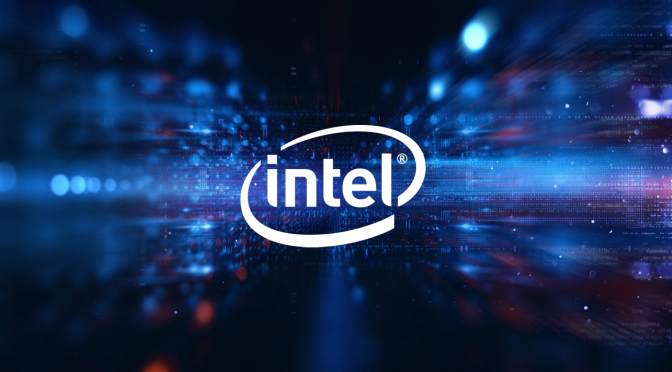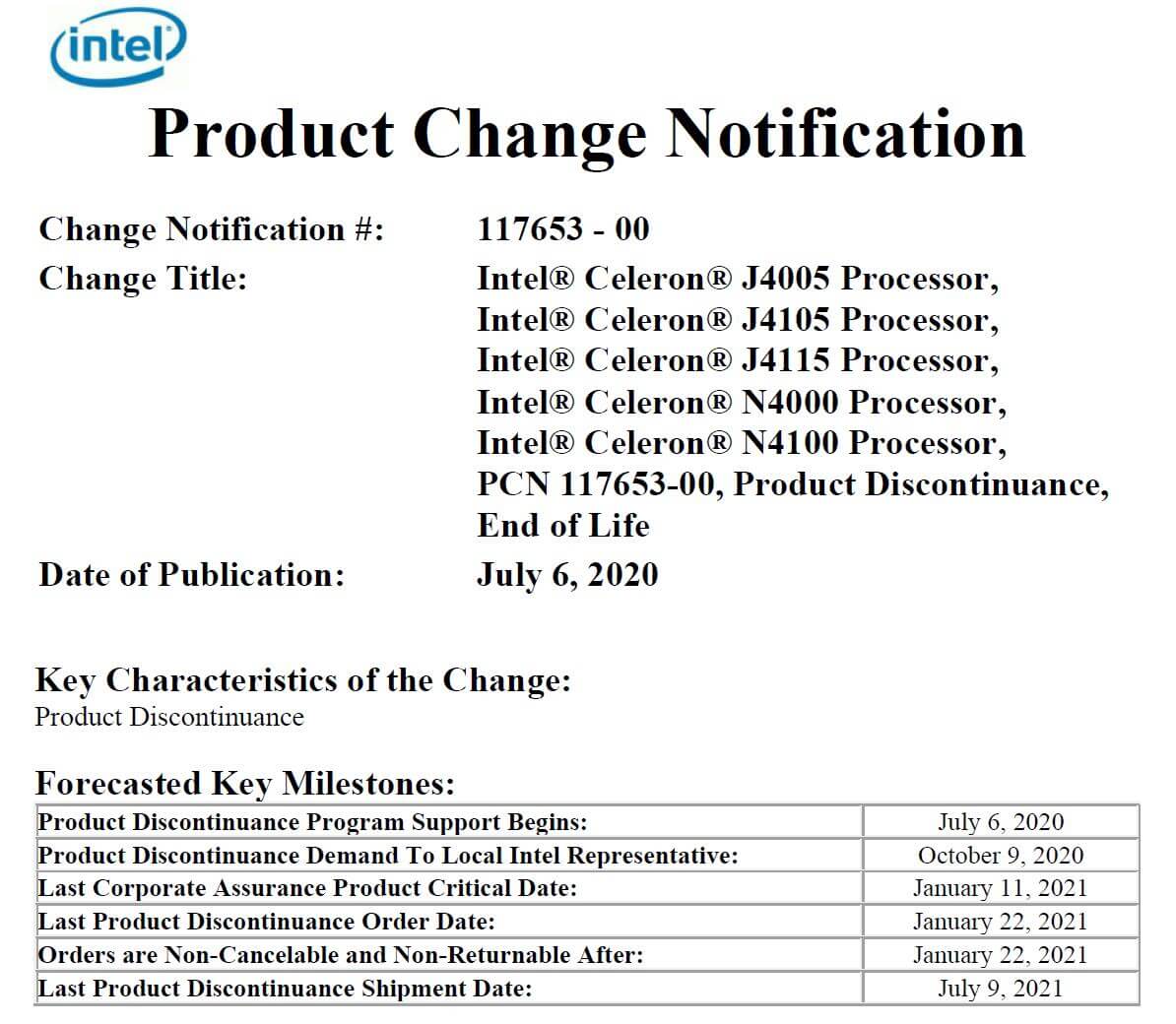Intel has finally decided to discontinue the Gemini Lake series of third-generation low-power SoC processors. This move is not unexpected though, since Intel already introduced the updated Gemini Lake Refresh chips back in October last year.
First introduced back in 2017, Intel is now retiring its Gemini Lake family of CPUs. These have since been replaced with the Gemini Lake Refresh (Gemini Lake R) lineup, which was launched last year, so discontinuing the 2017 lineup doesn’t come as a surprise.
Gemini Lake (GLK) core is the name for Intel’s generation of system on chip/SoC series, serving as a successor to Apollo Lake. These low-power chips primarily targeted entry level embedded devices, low-cost laptops and desktops, and all-in-one PCs as well as loTs. Gemini Lake chips are manufactured on a 14 nm process and are based on the Goldmont Plus microarchitecture.
In an attempt to differentiate the low-power core from Intel’s big cores, beginning with Goldmont Plus, Pentium-based Gemini Lake was re-branded as Pentium Silver, whereas Intel’s big cores (e.g., Kaby Lake) were re-branded as Pentium Gold.
Gemini Lake family consists of entry-level CPUs from the Pentium Silver (J5005 and N5000) and Celeron (J4115, J4105, J4005, N4100, N4000, and N4000C). All of these CPUs are either dual or quad-core, and they lack hyperthreading as well. The J-series are 10W parts, while the N-series CPUs are 6W parts. Of course, this has nothing to do with Pentium Gold, which is actually a full Core CPU.
Gemini Lake doesn’t usually show up in too many PCs for obvious technical reasons, but it has carved out a bit of a niche in the mini-PC market though, where its native HDMI 2.0 support and VP2 Profile 2 support (for HDR) has given it an upper hand over Intel’s 7th/8th/9th generation Core parts. The value of the base frequency of these chips ranges from 1.1 to 2 GHz, and boost clock speeds are within 2.4 to 2.8 GHz range. These chips are equipped with a 4 MB second level cache. The TDP of these processors varies depending on the specific model and ranges from 6 to 10 watts.
The Gemini Lake R processors that replaced the ones being discontinued now are not entirely different in a big way, meaning that they’re still using the 14nm process node, and they also come in dual and quad core flavors, and they still have 6W and 10W TDPs. The main differentiating factor is the slightly higher clock speeds though.
According to Intel, the last Pentium Silver orders will be taken on October 23rd, and the company says that the final orders will be shipping on April 2 next year, whereas the last Celeron orders will be taken on January 22 of next year, with the last orders shipping on July 9.
Sources: Intel’s official PDF documents 1, 2 and 3.
Hello, my name is NICK Richardson. I’m an avid PC and tech fan since the good old days of RIVA TNT2, and 3DFX interactive “Voodoo” gaming cards. I love playing mostly First-person shooters, and I’m a die-hard fan of this FPS genre, since the good ‘old Doom and Wolfenstein days.
MUSIC has always been my passion/roots, but I started gaming “casually” when I was young on Nvidia’s GeForce3 series of cards. I’m by no means an avid or a hardcore gamer though, but I just love stuff related to the PC, Games, and technology in general. I’ve been involved with many indie Metal bands worldwide, and have helped them promote their albums in record labels. I’m a very broad-minded down to earth guy. MUSIC is my inner expression, and soul.
Contact: Email


